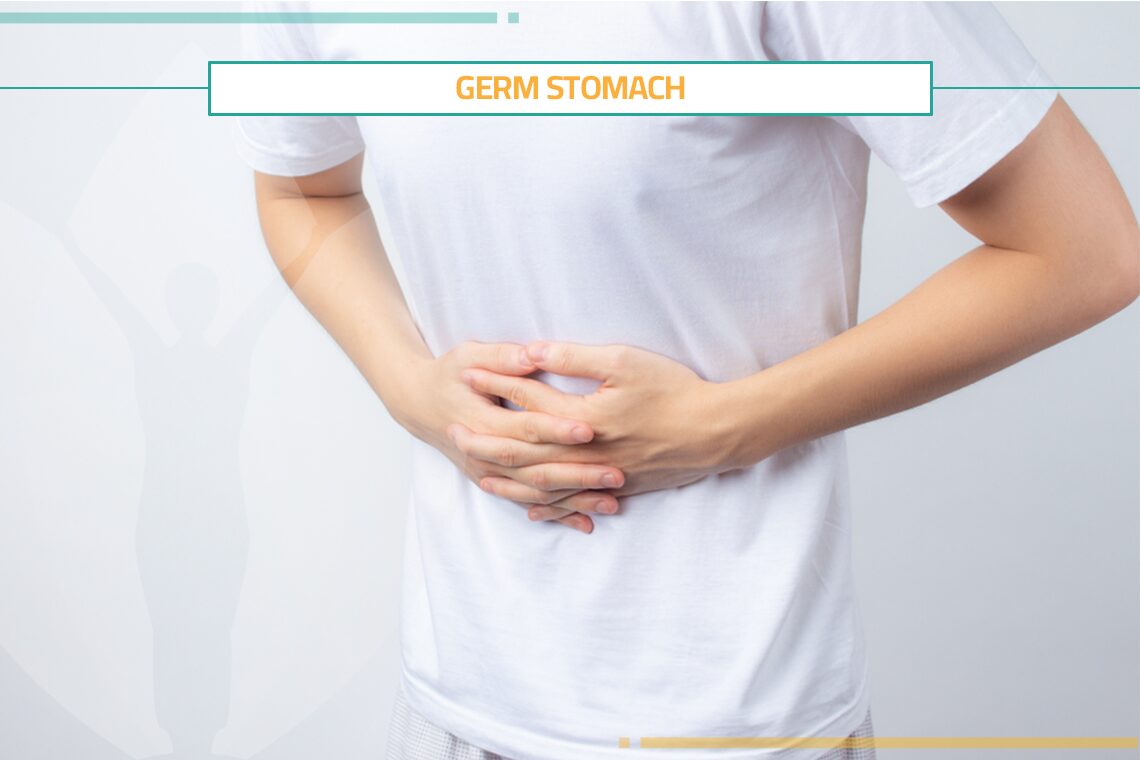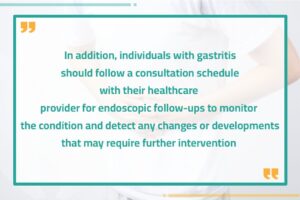What`s Germ Stomach?
Germ Stomach “Gastritis” is a condition characterized by inflammation of the lining of the stomach. It can be caused by various factors, including infection with Helicobacter pylori bacteria, excessive alcohol consumption, prolonged use of nonsteroidal anti-inflammatory drugs, and autoimmune disorders
Germ Stomach Medicine
The symptoms of gastritis may include abdominal pain, nausea, vomiting, bloating, indigestion, and loss of appetite. Treatment for gastritis depends on the underlying cause. If the gastritis is caused by H. pylori infection, antibiotics may be prescribed to eradicate the bacteria.
Other treatments may include avoiding triggers such as alcohol and certain medications, managing stress levels, and making dietary modifications. In severe cases, medications to reduce stomach acid production or neutralize stomach acid may be prescribed.
In addition, it is important for individuals with gastritis to follow a healthy lifestyle, including eating smaller, more frequent meals and avoiding spicy or acidic foods that may irritate the stomach lining. Furthermore, regular check-ups and endoscopic follow-ups are recommended for the secondary prevention of gastric cancer in individuals with gastritis.
Germ Stomach Symptoms
When dealing with potential germ stomach symptoms, it’s important to be vigilant and recognize any signs of infection or inflammation that may be causing gastritis. Some common symptoms of potential germ-related stomach issues include persistent abdominal pain, bloating, nausea, and unexplained weight loss. It’s essential to seek medical attention if you experience these symptoms, especially if they persist or worsen over time.
In addition to being aware of symptoms, it’s crucial to understand the potential sources of germ stomach infections, such as H. pylori or other bacteria, and take proactive measures to prevent their spread. This includes practicing good hygiene, such as washing hands thoroughly before handling food, and avoiding consumption of contaminated water or food.
Gastritis caused by H. pylori infection may present with specific symptoms, and diagnosing and treating it promptly is essential to prevent complications and promote stomach health. Your healthcare provider can perform tests to determine the presence of H. pylori and recommend appropriate treatment to eradicate the bacteria.
Understanding and addressing potential germ stomach symptoms can play a crucial role in managing gastritis and working towards long-term stomach health.
Do you want to follow 100% Effective Facial Botox?
Preventing Gastritis and Promoting Gastric Health
Preventing gastritis and promoting gastric health involves implementing certain lifestyle changes and practices. These may include:
- Avoiding excessive alcohol consumption and smoking, as both of these can irritate the stomach lining and increase the risk of developing gastritis.
- Limiting the use of non steroidalanti-inflammatory drugs, as prolonged use can lead to gastritis.
- Avoiding the consumption of spicy and acidic foods that can irritate the stomach lining.
- Managing stress levels through techniques such as exercise, meditation, and stress management techniques, as stress can worsen symptoms of gastritis.
- Practicing good hygiene and avoiding bacterial infections, such as washing hands regularly and properly handling and cooking food to prevent infection with H. pylori.
- Seeking prompt treatment for any underlying health conditions or infections that increase the risk of gastritis, such as autoimmune disorders or H. pylori infection.
- Regular check-ups and endoscopic follow-ups are also recommended for individuals with gastritis to detect any changes or development of premalignant lesions that may increase the risk of gastric cancer.
Managing Gastric Symptoms
Managing gastric symptoms involves taking appropriate measures to alleviate discomfort and promote healing of the stomach lining. This may include:
- Taking medications as prescribed by a healthcare provider, such as proton pump inhibitors or antacids, to reduce stomach acid and relieve symptoms of gastritis such as pain and heartburn.
- Avoiding foods and beverages that can exacerbate symptoms, such as spicy foods, caffeine, carbonated drinks, and fatty or fried foods.
- Eating smaller, more frequent meals to avoid putting excessive pressure on the stomach.
- Chewing food thoroughly and eating slowly to aid digestion and prevent excess stomach acid production.
- Maintaining a healthy weight to reduce pressure on the stomach and decrease the risk of acid reflux.
- Avoiding smoking and excessive alcohol consumption, as these can irritate the stomach lining and worsen symptoms of gastritis.
Seeking Relief with Herbal and Natural Remedies
In addition to traditional medicine, many people have found relief from gastritis symptoms by using herbal and natural remedies. Ginger has been known for its anti-inflammatory properties and can help soothe the stomach lining. You can consume ginger in various forms, such as ginger tea, or by adding it to your meals.
Peppermint is another herb that has been used to alleviate discomfort associated with gastritis, as it can help relax the muscles of the gastrointestinal system and reduce inflammation.
Probiotics, such as those found in yogurt or fermented foods. It can also aid in promoting a healthy gut and reducing inflammation in the stomach. It is advisable to incorporate probiotic-rich foods into your diet to support the natural balance of bacteria in the digestive system.
Chamomile tea is known for its calming and anti-inflammatory effects, which may provide relief from gastritis symptoms. Additionally, consuming aloe vera juice in small amounts may help soothe the stomach due to its anti-inflammatory properties.
Remember to consult with a healthcare provider before using any herbal or natural remedies. Especially if you are currently taking other medications.
How to get rid of Back Fat with exercises?
Managing H. pylori Infection
If you have been diagnosed with H. pylori infection as the cause of your gastritis. It’s important to follow your healthcare provider’s prescribed treatment plan to eradicate the bacteria. This commonly involves a combination of antibiotics along with acid-reducing medications to promote healing of the stomach lining.
It’s essential to take all prescribed medications as directed. Even if you start feeling better before you finish the full course of antibiotics. This ensures that the infection is completely eradicated and reduces the risk of recurrence.
In addition to medical treatment, maintaining good hygiene practices and avoiding potential sources of H. pylori infection is crucial. This includes thoroughly washing hands, maintaining food safety, and avoiding exposure to contaminated water.
Regular follow-ups with your healthcare provider are important to monitor the effectiveness of the treatment and to address any persisting symptoms or potential complications.
By actively managing and treating H. pylori infection. You can effectively address the underlying cause of your gastritis and work towards promoting long-term gastric health. Remember to discuss any concerns or questions about your treatment plan with your healthcare provider for personalized guidance.






